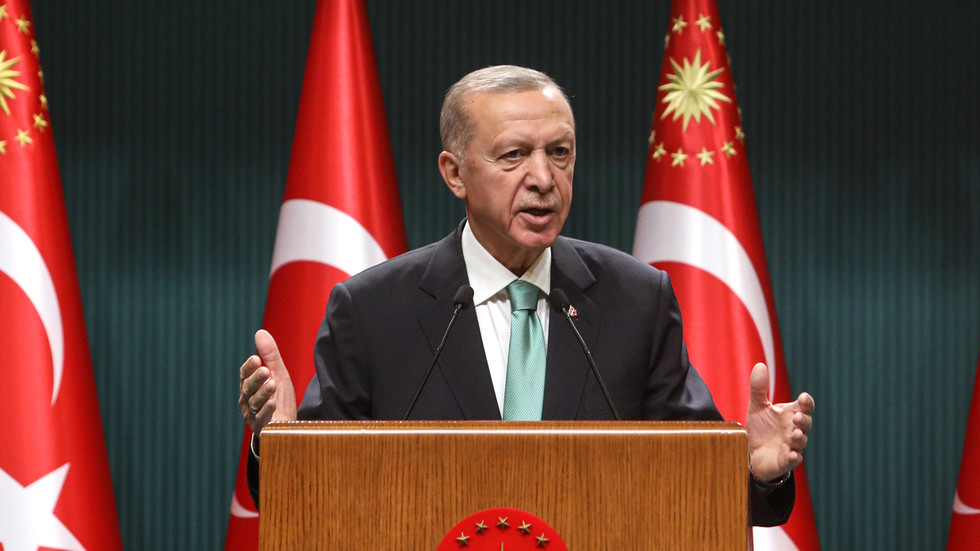In recent developments regarding the ongoing conflict in Syria, Turkish President Recep Tayyip Erdogan reiterated Ankara’s commitment to preserving Syria’s territorial integrity. During a press conference with Montenegrin President Jakov Milatovic, Erdogan highlighted the necessity of acknowledging the “legitimate wishes” of the Syrian populace in the peace process. He expressed concern over the resurgence of fighting, particularly noting the large-scale offensive launched by the Islamist militants from Hayat Tahrir al-Sham (HTS) towards key Syrian cities such as Aleppo, Hama, and Homs. Erdogan emphasized that Turkey’s priority remains the national unity of Syria and a peaceful resolution to the conflict, underlining continuous monitoring of the situation and consultations between Turkish officials and their counterparts.
Turkish Foreign Minister Hakan Fidan pointed to the Damascus government’s failure to address the underlying issues plaguing Syria as a catalyst for the renewed violence. In a joint press conference with Iranian Foreign Minister Abbas Araghchi, Fidan placed blame on President Bashar Assad’s administration for failing to respond adequately to what he termed the “legitimate demands of the opposition.” He argued that a lack of political engagement from the Syrian government has exacerbated the situation, leading to the current resurgence of armed conflict. Fidan reaffirmed Turkey’s longstanding position on protecting Syrian territorial integrity and expressed Turkey’s intention to maintain this stance moving forward.
The geopolitical dynamics in the region have been shaped significantly by past agreements involving Turkey, Iran, and Russia aimed at stabilizing Syria. The Astana Process, initiated in 2017, was a key framework designed to support the resolution of the Syrian civil war, which initially erupted in 2011 following anti-government demonstrations. Erdogan referenced this process as a means to reinforce Turkey’s commitment to ensuring Syria’s territorial integrity while managing its interventions in the conflict effectively. He noted prior negotiations with Moscow that led to a ceasefire agreement which mandated Turkey’s efforts to differentiate between the ‘legitimate opposition’ and terrorist factions linked to groups such as al-Qaeda.
The recent escalation in conflict was precipitated by a surprise attack from HTS and associated groups, marking their first significant incursion into Aleppo since 2016. This offensive not only enabled the insurgents to gain a foothold in the strategic city but also put additional pressure on Syrian government forces in the Hama and Homs regions. Responding to this renewed threat, Russian military forces stationed in Syria have intensified their air operations against the militant factions to aid President Assad’s government, further complicating the already volatile situation in the country.
The Turkish government is closely monitoring the turbulent developments within Syria and remains engaged in discussions with international stakeholders about addressing the ongoing conflict. By emphasizing the need for a political solution that respects the voice of the Syrian people, Turkey positions itself as a key player in the future of Syria. Additionally, Erdogan’s statements highlight a more extensive diplomatic effort to stabilize the region, advocating for a resolution that balances both Turkish interests and the demands of various Syrian factions.
As the conflict unfolds, the international community watches closely for signals of a potential shift in the power dynamics within Syria. With continued military involvement from both Russian and Turkish forces, the situation remains precarious, and the quest for an enduring peace appears as elusive as ever. The responses from Turkey underscore a strategic balancing act as Ankara navigates its role amidst regional alliances and the complexities of the Syrian opposition, promoting a need for dialogue while also addressing the realities of the entrenched conflict.

